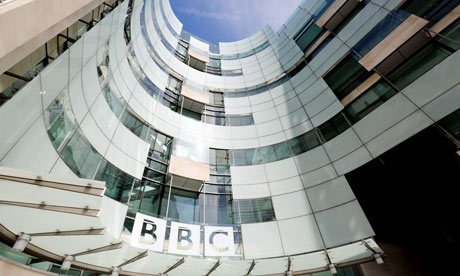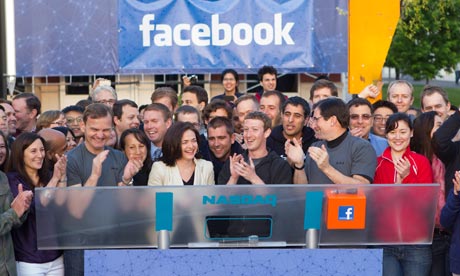3.
- Text Documents - Google Docs , MyTextFile, Text Files.
- Photographs - Flickr, PhotoBucket, Google Images
- Video - Google Video, YouTube, DailyMotion
- Movies - BlinkBox, LoveFilm , NetFlix
- Videogames - GAME , Play.com , GameSpot
- Audio Recordings - Vocaroo , Voice Recording Online , Muziboo
- Computer Programs - Online Utility , SpectorSoft, Microsoft
5. I believe that Briggs and Burke are correct when they state that the internet is the medium of the twentieth century but also adding on to this, it is the medium of the future even from today. It is highly important as there is a very significant percentage of people in the world that have access to the internet and this could also be related to McLuhan's theory of the world becoming a 'global village'. The reasoning for this is due to the fact that people from all over the world are able to maintain contact with each other through the internet which is a quick and efficient method of doing so and this could have never been done in the past.
The Information Age relates to the revolution in the manner that people receive and collect information; which, with the support of the internet, has become an easier method of spreading information around the world.
6. 2407.5 million people have access to the internet as of 30th June 2012.
7. The Gutenberg Revolution:
- Religion
- Science
- Art
8. - Communication - Social Networking
- Nature of information
- Culture - Lack of culture
- Privacy - Hacking (Personal Information)
- Community - Social Networking
- Business - Skype Meetings across the world
- Copyright - Taking the work of others to pass of as your own
9. What is so special about the internet?
- Tool used for rapid communication
- Store data online for back ups
- Can become recognisable through UGC (YouTube)
- Save lives through sharing information
- Affordable
12. TASK - Suggest THREE other ways it could be argued that the internet might be ‘killing our culture’?
- pornography
- piracy
- cyber-bullying
12. TASK - Suggest THREE other ways it could be argued that the internet might be ‘killing our culture’?
- pornography
- piracy
- cyber-bullying
13. The information that is revealed to users could be construed as something immoral and could force individuals, especially young people, to become aware of these things from a young age which are attempted to be kept from them and could then promote sex which in turn could lead to an increase in teenage pregnancies etc.
15. - An online study published by OFCOM
- A report on BBC News Online
- An article on Wikipedia
- An academic paper available at a US University website
- A film review in the comments section on IMDB24. The internet allows people to educate themselves through various sources and changes the way people think.
28. One-to-one communication - Telephone, Letters, Text Messaging
One-to-many communication - Books, Film, Television, Radio
Many-to-many communication - Newspapers, Magazines, Forums, Chatrooms
32. Pareto's Law was looked into by Lin and Webster in 2002 and technology has rapidly increased over the years since then and therefore communication has increased also. This means that there are social networking sites and website that allow users to upload user-generated content which can be viewed across the world on the internet. This is a form of communication that allows information to be spread quickly and through various forms.
32. Pareto's Law was looked into by Lin and Webster in 2002 and technology has rapidly increased over the years since then and therefore communication has increased also. This means that there are social networking sites and website that allow users to upload user-generated content which can be viewed across the world on the internet. This is a form of communication that allows information to be spread quickly and through various forms.
34. What is the difference between an internet user and a
television viewer? Are you more active on-line Justify your answer
The internet user is anyone that uses the internet to collect information that could educate or entertain them. A television user is someone that has the access to TV and views various things on that television which can vary however these things can also be viewed on the internet through various websites such as Channel 4OD.
36. Recall THREE examples that demonstrate how media institutions influence what we think.
Newspapers - political views can change through the biased papers such as The Sun who used to support the Labour party and then switched to the Conservative party when they won the last election along with the Liberal Democrats.
Film - The amount of sales from film can cause a boost in the economy and therefore allow the country to become stronger in terms of its economical values.
Television - Culture can be diversified as portrayals are changed in television and therefore promote values and beliefs about culture that could appeal to people and cause them to change their values to match these.
37.
The front page of The Sun - Very biased
A parliamentary report on BBC News 24 - Somewhat biased
An editorial in The Guardian - Stating their own opinions therefore bias will be recognised.
A typical Hollywood action film - Neutral
An episode of Big Brother on C4 - Neutral
The headlines on Fox News - Very biased due to NewsCorp conglomerate owner Rupert Murdoch
A typical British ‘social realist’ drama film - Slight bias to the representations that are shown
A police/crime documentary on ITV1 - No bias
41.
Less censorship - pornography, extreme politics, conspiracy theories…
Less censorship - pornography, extreme politics, conspiracy theories…
More freedom - blogs, forums, global information
Supporting innovation/entrepreneurialism - internet start-ups, social networking, Google
Anti-establishment - G8 protests, file-sharing
Cottage industry - eBay
47. Have the inequalities that characterise old media ownership extended into new media ownership?
Is the internet run by powerful media institutions?
47. Have the inequalities that characterise old media ownership extended into new media ownership?
Is the internet run by powerful media institutions?
Conglomerates such as NewsCorp own a large percentage of the media that we live in however in my opinion, I would not agree by saying that the internet is controlled by large media institutions as there are many sources where information can be published and people are free to voice their own opinions. There may be a certain extent to which institutions can control the publications on the internet however I believe that e-media is a platform that is free of regulation and anyone could provide information about something to someone across the world without anyone even knowing about it.
54. There are always concerns about new technology. In your view, what are the possible benefits and problems attached to the Internet?
The benefits of the internet include the fact that information is readily available to a user and therefore people can educate themselves and possibly gain recognition through UGC on sites such as YouTube or E-Blogger. A disadvantage of the internet is the minimal use of regulations that are present and therefore publications from people could prove to be disadvantageous.
76.
Case Study:76.
Who owns the site? Larry Page and Sergey Brin
Do they also own any traditional media businesses? Yes (Blogger, YouTube)
What other internet sites do they own? 23 of the top 100 most popular sites in the world.
What is its revenue? $37,905
What is its overall worth? $249.9billion
Research five key facts about the institution.
- The infamous “I feel lucky” is nearly never used. However, in trials it was found that removing it would somehow reduce the Google experience. Users wanted it kept. It was a comfort button.
- They use the 20% / 5% rules. If at least 20% of people use a feature, then it will be included. At least 5% of people need to use a particular search preference before it will make it into the ‘Advanced Preferences’.- Google has the largest network of translators in the world
- The prime reason the Google home page is so bare is due to the fact that the founders didn’t know HTML and just wanted a quick interface. In fact it was noted that the submit button was a long time coming and hitting the RETURN key was the only way to burst Google into life.
- Due to the sparseness of the homepage, in early user tests they noted people just sitting looking at the screen. After a minute of nothingness, the tester intervened and asked ‘Whats up?’ to which they replied “We are waiting for the rest of it”. To solve that particular problem the Google Copyright message was inserted to act as a crude end of page marker.
Find three quotes (with references) about the institution.
Google is working on self-driving cars, and they seem to work. People are so bad at driving cars that computers don't have to be that good to be much better.
- Marc Andreessen
- Marc Andreessen
The great thing that guys like Facebook's Mark Zuckerberg and the Google guys have in common is they treat their technology like it's art, and I suppose in the hands of virtuosos like them, it is.
- Harvey Weinstein
- Harvey Weinstein
If I could edit Google Images, then I wouldn't be as scared of the Internet.
- Chloe Sevigny
- Chloe Sevigny
List the key info provided on the company’s corporate homepage.
On April Fools' Day in 2004, we launched Gmail. Our approach to email included features like speedy search, huge amounts of storage and threaded messages.
Our Initial Public Offering of 19,605,052 shares of Class A common stock took place on Wall Street on August 18, 2004.
We acquired digital mapping company Keyhole in 2004, and launched Google Maps and Google Earth in 2005. Today Maps also features live traffic, transit directions and street-level imagery, and Earth lets you explore the ocean and the moon.
In 2006, we acquired online video sharing site YouTube. Today 60 hours of video are uploaded to the site every minute. Cat videos, citizen journalism, political candidacy and double rainbows have never been the same.
Amidst rumors of a “Gphone,” we announced Android—an open platform for mobile devices—and the Open Handset Alliance, in 2007.
Word got out about Google Chrome a day ahead of schedule when a comic book introducing our new open source browser was shipped earlier than planned. We officially launched on September 2, 2008.
Larry Page, Google’s original CEO until 2001, took up the title again in April 2011. Eric Schmidt, now our executive chairman, served in the role for 10 years.
In June 2011, we introduced the Google+ project, aimed at bringing the nuance and richness of real-life sharing to the web, and making all of Google better by including people, their relationships and their interests.


